How do we keep our goats healthy? That’s a great question, and one you should definitely be asking before you feed our milk to your pet! Below is a brief explanation of our practices and biosecurity policies. Feel free to ask if you have any other questions though.
The most common question we get about our health care practices is about the use of chemical dewormers, antibiotics and vaccinations. After 40+ years of caring for dairy goats, we have learned that the fewer man-made medicines we use, the healthier our goats are. With this in mind, we only use these products as is absolutely necessary or when lifesaving measures are needed.
- Chemical dewormers are used for heavy loads of parasites. We especially rely on ivermectin and fenbendazol because of their safety and our own personal experience with taking them. A majority of our parasite control however comes from rotation grazing, drylotting and a daily natural dewormer (dieationous earth and minerals). We also use a variety of herbs to prevent and control parasites.
- Antibiotics are used when our natural antibiotics (garlic, oregano, vitamin C, etc.) cannot be given orally or are not strong enough. Most of our girls, at some point in their lives, will have a difficult delivery. Because barns are not sterile environments for assisting with deliveries, this almost always means that antibiotics will have to be used to prevent a deadly infection. It is rare that we use antibiotics for other illnesses or injuries.
- Vaccinations. With the rising awareness of the dangers of vaccinations, we have had a lot of questions about vaccinations for our goats. This is good… you should be asking. But before we dive into this, you need to know three things.
- Animal vaccinations are not made by the same companies as vaccinations for people. Companies making animal vaccinations can be (and have been) sued for damages, loss of livestock or illness. Because of this accountability, these companies cannot get away with creating poorly made or intentionally damaging vaccinations.
- Most animal vaccinations (for small scale farmers like us) are not live vaccines. This means the are killed viral or bacterial strains. Large farms and dairies often use vaccinations produced for managing thousands of animals. These live, multi-disease shots are not available for general purchase.
- Most animals on small hobby farms live in third-world conditions. They live on the ground, sleep on the ground, eat unwashed plants and have no bathroom facilities. Even in the cleanest barns, these animals are facing germs and dirt very similarly to the way most of humanity has lived for several thousand years.
- Now, to address whether we vaccinate our goats… YES! We definitely do.
- Specifically, we vaccinate for three things that we have seen kill our goats in the past. Tetanus, trust us, you don’t wanna see a baby goat die from tetanus. E-Coli, cause if we have e-coli again, it will shut down all milk sales! (E-Coli is also contagions to humans from animals.) And Colstridium Perfringens Types C and D. What’s that? A bacteria only goats can get when they overeat. And it will kill them.
- Do we ever have adverse reactions to the vaccinations? Until about 5 years ago, no, reactions were scarce to none. We have had a few incidents recently, which have all been completely resolved with natural remedies in a matter of days. We are happy to chat about the subject and share the knowledge we have gained on this topic with those in need of it.
- So, I want unvaccinated milk, tell me what farm I can go to for it. We are unaware of any goat milk farms in Florida who own and milk unvaccinated goats. If you find such a farm, please let us know so we can share their name.
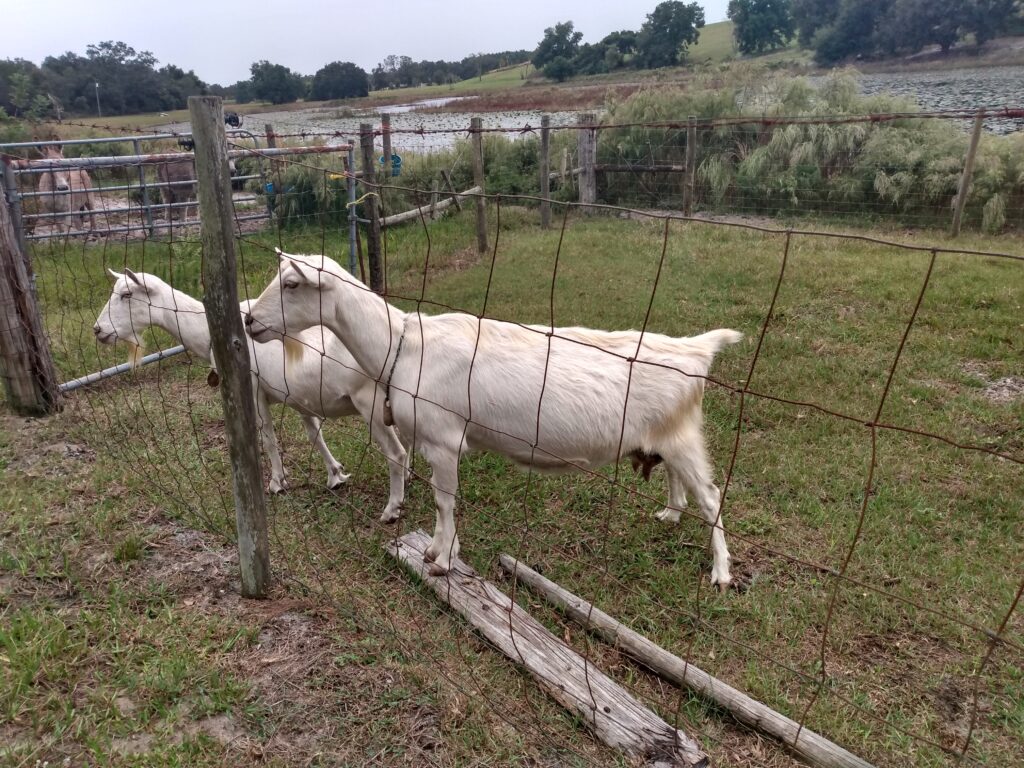
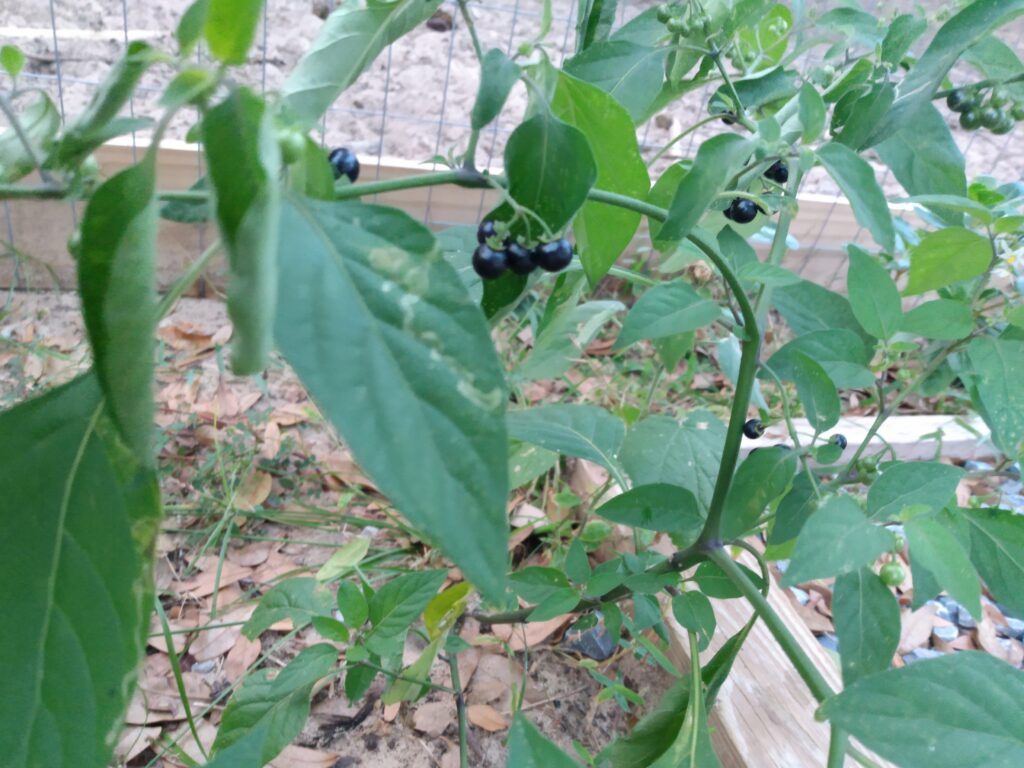
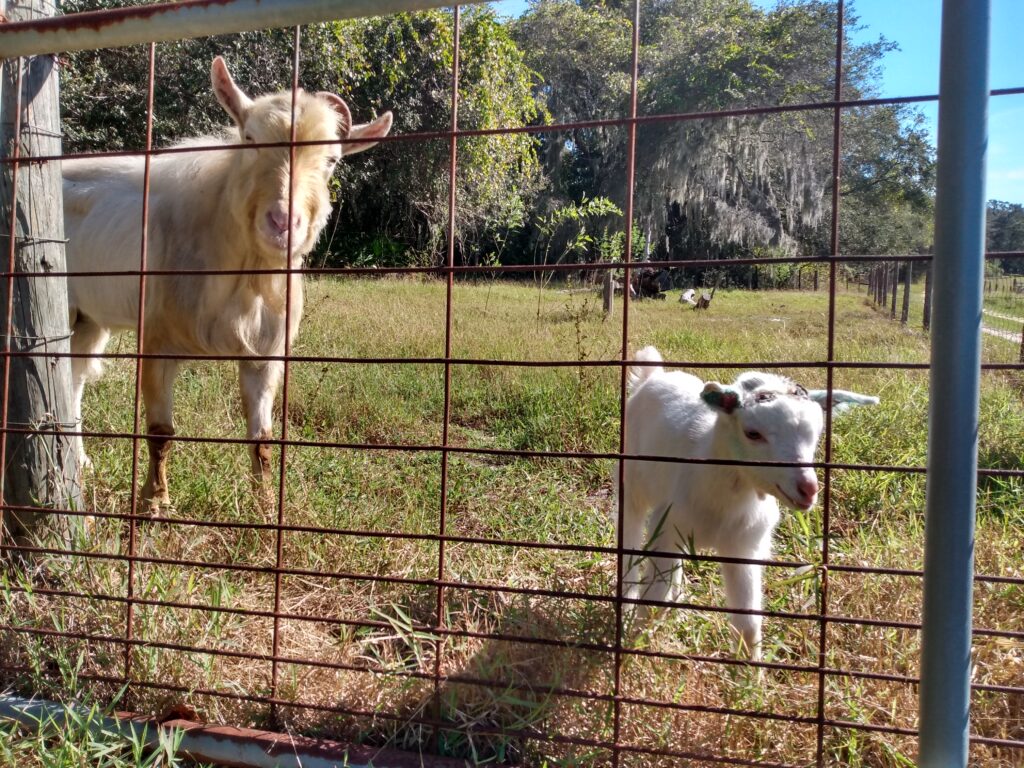
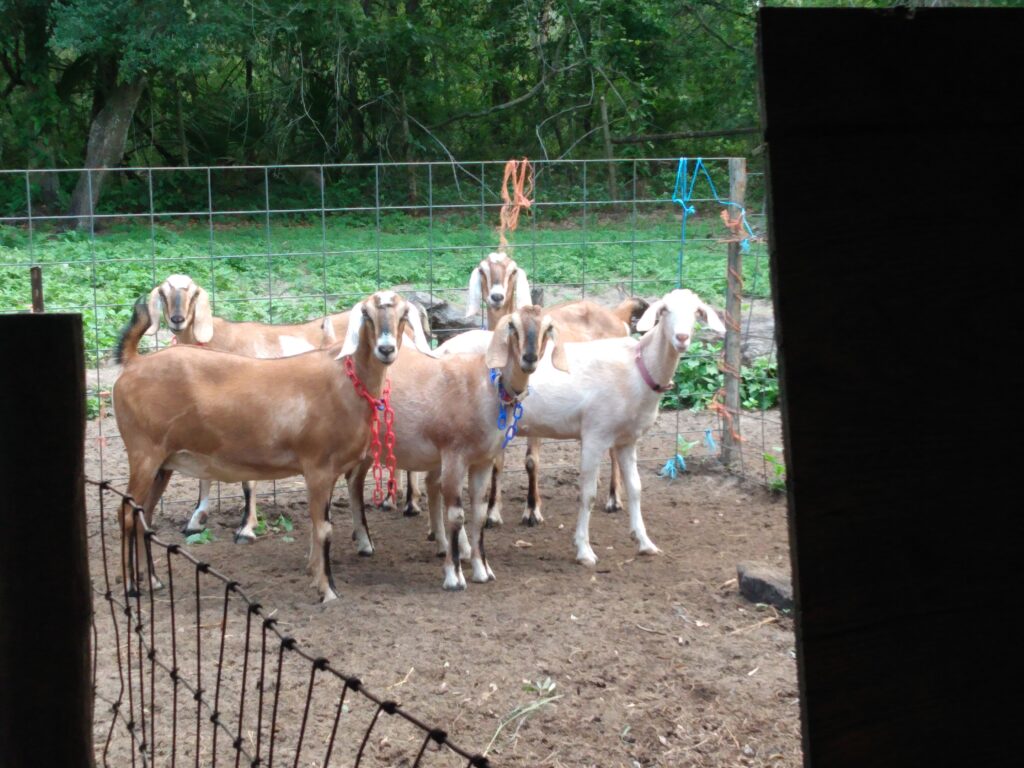
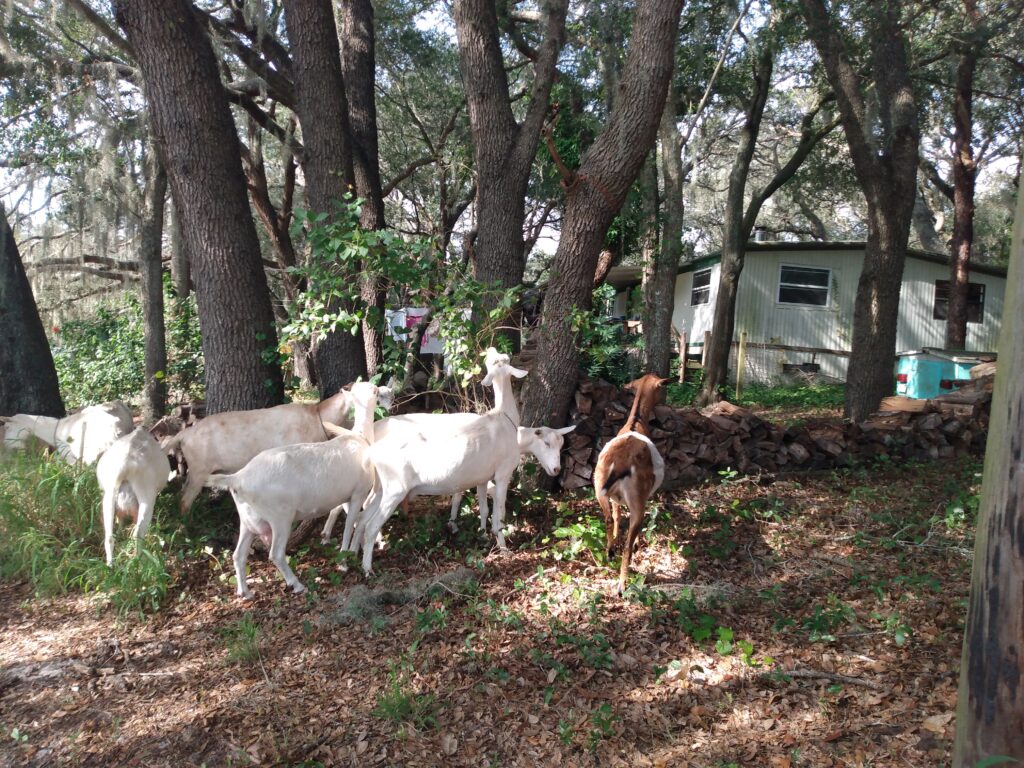
![]()